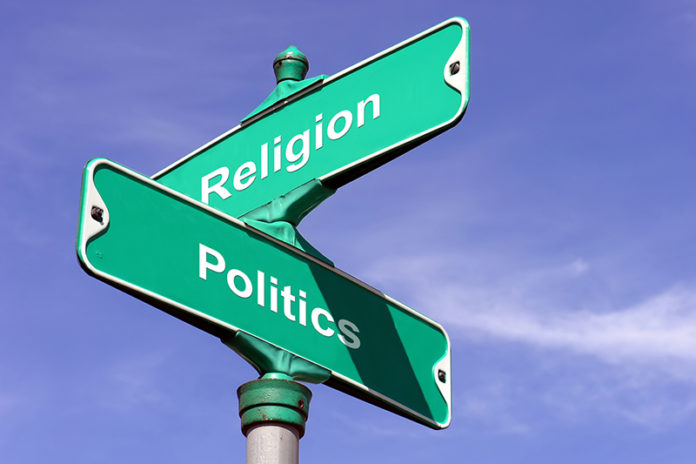The First Amendment reflects a principled but shrewd attitude toward religion, which can be summarized: Government should keep its big fat nose out of matters of faith. The current Supreme Court, however, is not in full agreement with that proposition. It is in half agreement — and half is not enough.
This section of the Bill of Rights contains two commands. First, the government can’t do anything “respecting an establishment of religion” — that is, sponsoring, subsidizing or providing special favors for religious institutions or individuals.
Second, the government may not infringe on the “free exercise” of faith. Americans are entitled to practice their religion without government interference. In short, the government should be scrupulously neutral — not the champion of religion in general or any particular belief and not the enemy.
When it comes to free exercise, this Supreme Court is as vigilant as a hungry tiger, ever alert to any policy that penalizes believers — as it should be. On June 21, the court rebuked Maine for an official bias against religious education.
Because the state’s people are widely scattered in rural areas, many school districts lack enough students to justify their own high schools. The state provides tuition assistance so that parents can send their kids to any secondary schools they want, public or private.
There is just one major caveat: The school must be “nonsectarian.” Parents who think a religious school is their best option don’t have a prayer.
The state thinks this policy is required by the First Amendment, on the theory that public money can’t be spent to support religion. But letting families use their tuition aid for accredited religious schools is not state support of religion. The state doesn’t decide where the money goes. The choice lies with parents.
It’s not state sponsorship of religion for them to spend it on a religious school — any more than it would be to spend unemployment benefits that way. The state, wrote Chief Justice John Roberts, may not “exclude some members of the community from an otherwise generally available public benefit because of their religious exercise.”
Religious freedom is often seen as a weapon for Republicans to use in the culture wars — by exempting a religious baker from designing a cake for a same-sex wedding and by sparing Hobby Lobby from providing insurance coverage for contraceptives because of its religious objections.
But the court has also upheld the religious rights of people not normally favored by conservatives. It said Arkansas couldn’t forbid a Muslim prisoner from having a beard as mandated by his faith. It said a Texas death row inmate was entitled to have his pastor hold his hand and pray aloud during his execution.
Unfortunately, this court’s sharp eye for religious freedom violations sometimes blinds it to other concerns. In a recent case, it sided with Joseph Kennedy, a public high school football coach who made a habit, after games, of kneeling at the 50-yard line and praying aloud.
Before long, most of his players were joining him. The coach also invited opposing coaches and players to participate.
Kennedy insisted he was merely engaged in a personal ritual on his own. But he was acting in his capacity as a public school employee while players were under his supervision and control.
He could have waited until they had gone home before returning to the field to commune with the Almighty. Instead, he made a conspicuous public display, which created pressure on his players to join him — including some whose parents said they took part because they felt obligated. Who knows? Boycotting prayers might mean riding the bench.
The First Amendment is supposed to prevent some religious exercises — namely those conducted by agents of government to advance religion. The football coach, however, used his official position in a way that visibly endorsed a particular faith and had a coercive effect on students. And the Supreme Court cheered him on.
It was a bad decision that will have bad consequences. University of Virginia law professor Douglas Laycock told me: “It appears to repudiate the very idea of government neutrality as a constitutional norm. Government is now free to promote religion, and apparently free to promote Christianity in particular, at least in the public schools and possibly much more broadly.” The decision doesn’t enhance religious freedom; it endangers it.
The First Amendment was supposed to ensure official neutrality on matters of faith. This Supreme Court, however, is happy to see the government doing work that should be left to pastors.































